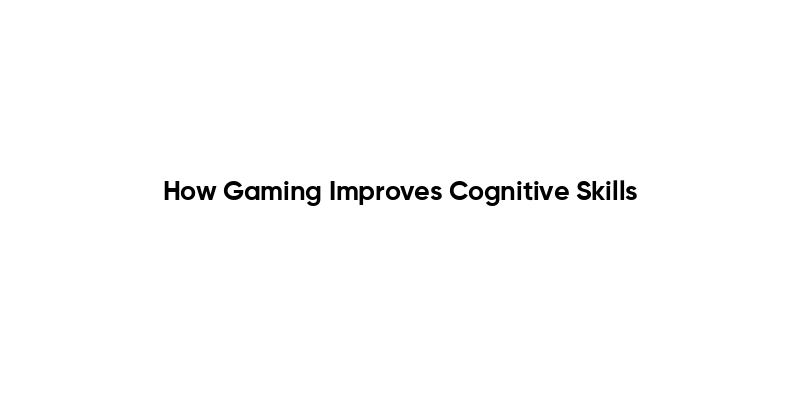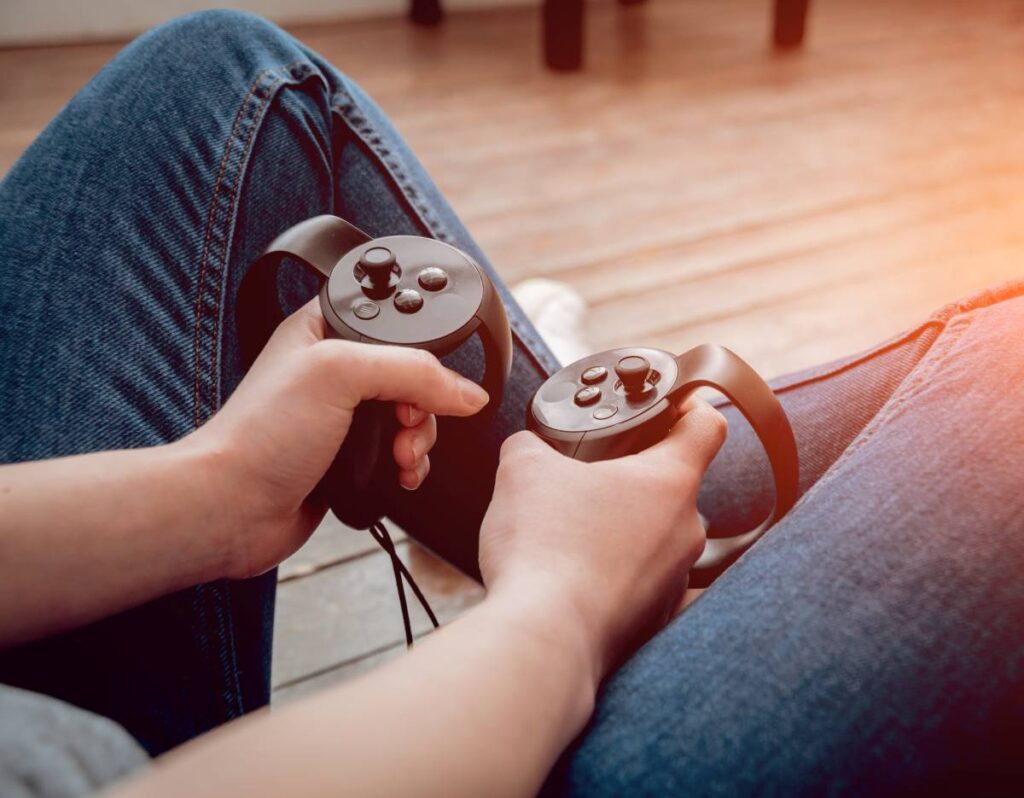Enhancing Problem-Solving Abilities
Video games often present players with complex challenges that require critical thinking and strategic planning. As players navigate through various levels, they must analyze situations, identify problems, and devise effective solutions. This process not only sharpens their problem-solving skills but also encourages them to think outside the box.
Moreover, many games incorporate puzzles and obstacles that require players to adapt their strategies in real-time. This adaptability fosters cognitive flexibility, allowing players to switch between different tasks and approaches seamlessly. As a result, gamers often become more adept at handling unexpected challenges in real life, translating their gaming experiences into practical problem-solving skills.
Improving Memory and Retention
Memory plays a crucial role in gaming, as players must remember various elements such as character abilities, map layouts, and quest objectives. Engaging in games that require memorization can significantly enhance both short-term and long-term memory. For instance, role-playing games (RPGs) often involve intricate storylines and character development, which encourage players to retain information over extended periods.
Additionally, many games utilize repetition and reinforcement techniques, which are effective for memory retention. Players frequently revisit previous levels or scenarios, reinforcing their knowledge and skills. This practice not only aids in memory improvement but also enhances overall cognitive function, making gamers more proficient in recalling information in other areas of their lives.
Boosting Attention and Concentration
Gaming requires a high level of focus and concentration, as players must pay attention to multiple elements simultaneously. Fast-paced games, in particular, demand quick reflexes and sharp attention to detail. This constant engagement helps improve players’ ability to concentrate for extended periods, which can be beneficial in academic and professional settings.
Research has shown that gamers often outperform non-gamers in tasks that require sustained attention and visual processing. The ability to filter out distractions and maintain focus is a valuable skill that can enhance productivity and efficiency in various aspects of life. As a result, gaming can serve as a training ground for improving attention spans and concentration levels.
Fostering Teamwork and Collaboration
Many modern games emphasize teamwork and collaboration, requiring players to work together to achieve common goals. Multiplayer games, in particular, encourage communication and coordination among team members. This collaborative environment helps players develop essential social skills, such as effective communication, conflict resolution, and empathy.
Through teamwork, gamers learn to appreciate diverse perspectives and leverage each team member’s strengths. This experience translates into real-world scenarios, where collaboration is often key to success. As players engage in cooperative gameplay, they not only enhance their cognitive skills but also build valuable interpersonal relationships that can benefit them in their personal and professional lives.
Enhancing Spatial Awareness and Navigation Skills
Many video games, especially those in the action and adventure genres, require players to navigate complex environments and understand spatial relationships. This gameplay fosters spatial awareness, as players must visualize their surroundings and plan their movements accordingly. Enhanced spatial skills can lead to improved performance in various fields, including architecture, engineering, and even everyday tasks like driving.
Furthermore, studies have indicated that gamers often excel in tasks that involve mental rotation and spatial reasoning. These skills are crucial for problem-solving in real-world scenarios, such as navigating unfamiliar locations or understanding diagrams and maps. By engaging in gaming, players can develop a stronger sense of spatial awareness that benefits them in both academic and practical applications.
Video games have been shown to enhance various cognitive skills through engaging gameplay and challenges. Below is a summary of how gaming contributes to cognitive development.
| Cognitive Skill | Description | Examples of Games |
|---|---|---|
| Problem-Solving | Games often present players with complex challenges that require critical thinking and strategy to overcome. | Puzzle games, Strategy games (e.g., Chess, StarCraft) |
| Memory | Many games require players to remember patterns, locations, and strategies, enhancing both short-term and long-term memory. | Memory games, RPGs (e.g., The Legend of Zelda) |
| Attention | Fast-paced games improve players’ ability to focus and maintain attention on tasks while filtering out distractions. | Action games, FPS (e.g., Call of Duty, Overwatch) |
| Spatial Awareness | Games that involve navigation and exploration help develop spatial reasoning and awareness of the environment. | Adventure games, Simulation games (e.g., Minecraft, Flight Simulator) |
| Multitasking | Many games require players to manage multiple tasks simultaneously, improving their multitasking abilities. | Real-time strategy games, MOBA (e.g., Dota 2, League of Legends) |
| Decision Making | Players often need to make quick decisions based on limited information, enhancing their decision-making skills. | Strategy games, Racing games (e.g., Forza, Mario Kart) |
In conclusion, gaming can be a powerful tool for cognitive development, offering a fun and engaging way to enhance various mental skills. By participating in different types of games, players can improve their problem-solving abilities, memory, attention, spatial awareness, multitasking, and decision-making skills.



